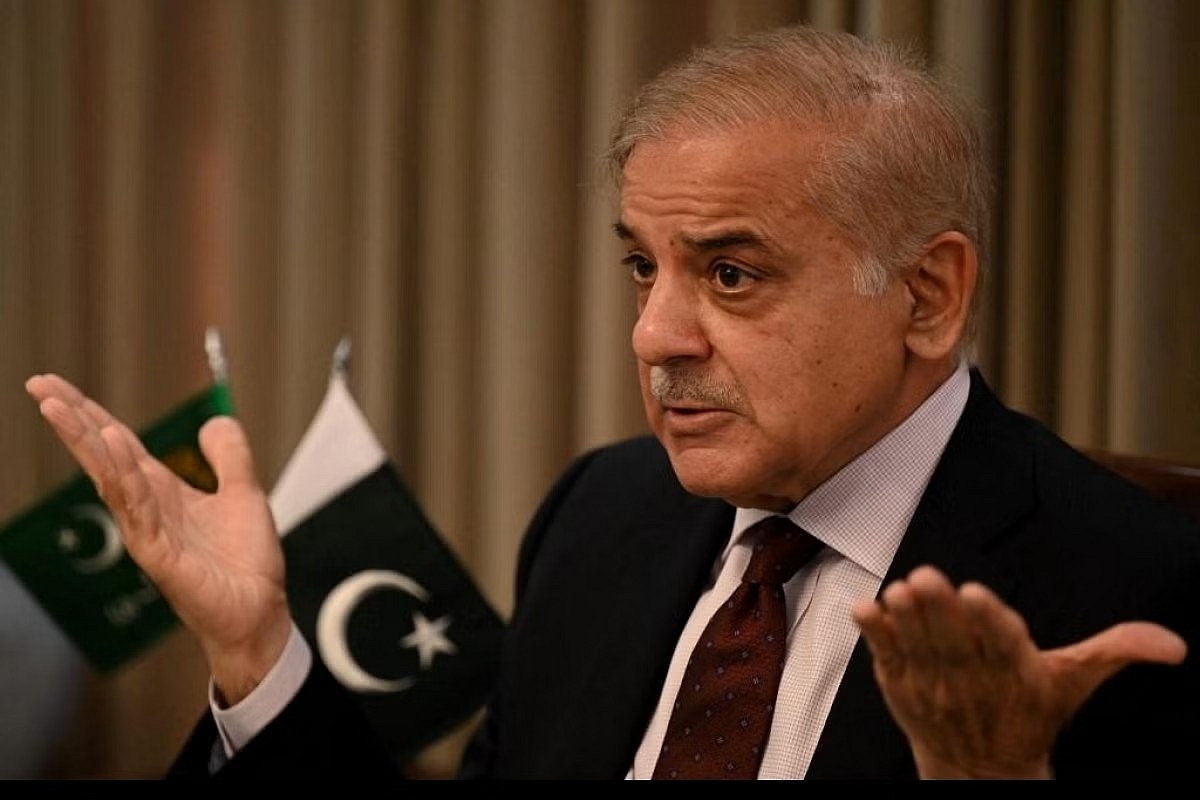Commentary
Pakistan Economic Crisis: The Consequences Of A Hostile Nuclear Neighbour That Is Now Bankrupt
- In Pakistan’s impending downfall, China will seek to maximise its investments with strategic gains.
- Is India prepared?

Pakistan Prime Minister Shahbaz Sharif.
By now, everyone has seen the images of Pakistan’s total power blackout and the serpentine queues outside fuel stations as the country is surviving on a thin supply of oil.
Pakistan has under $4.4 billion in forex exchange reserves, which can buy less than three weeks of imports.
With the Chinese, the Saudis and the Emiratis waiting for a green signal from the International Monetary Fund (IMF) before loosening their purse strings, it is unclear as to whether Pakistan will be able to raise enough funds to meet its basic economic needs.
But what is clear is that things are yet to hit rock bottom for India’s hostile neighbour.
The country currently has an inflation rate of about 25 per cent, and this is set to increase. Early this week, Pakistan announced an unprecedented 1 per cent hike in its benchmark rate, to 17 per cent. This is the highest rate increase by the Central Bank of Pakistan in 25 years.
Such a drastic rate hike will have a cascading impact on inflation. Rate hike will lead to an all-around increase in prices, most notably of essential items.
By various estimates, there are anywhere between 46-50 million people in Pakistan that are currently facing an acute food shortage. If food inflation spikes any more (it is already at an alarming 35 per cent), this figure will increase. It will worsen the humanitarian disaster that Pakistan’s policymakers have inflicted on their countrymen.
The country has no one but itself to blame, primarily its army, which runs the economy as the biggest warlord. The hamstrung civilian governments also have no appetite or desire for reforms or progress (for instance, Pakistan has still not abolished the Zamindari system, since it benefits the elites who run the country) and instead focus on the rhetoric of Kashmir (former prime minister Imran Khan stopped all trade between the two countries and insisted Article 370 to be reinstated for resumption of trade).
For the Pakistanis, though, what lies ahead is more economic pain and lingering uncertainty. In an election year, with a volatile Imran Khan itching to come back to power after his repeated stand-offs with the army and the deep state; this is a recipe for more unrest.
People will take to the streets protesting against Shahbaz Sharif’s government. But with Imran Khan’s ambition to topple the government and the deep state, the anguish of the average Pakistani will be used as a weapon to destabilise the country.
Already, Pakistan Prime Minister Sharif’s area of influence has shrunk dramatically since Balochistan, Sindh and other regions witness regular protests against the excesses of the Pakistan army. These regions have been brutally clamped down by the Pakistan Army. Add to it the civil unrest due to the economic pain, and what one gets is a scenario of complete chaos and hara-kiri.
In the event of a large-scale unrest and Imran Khan’s efforts to galvanise the people against the government, a possibility of asylum seekers cannot be ruled out.
A humanitarian disaster can quickly snowball into a major foreign policy issue for India, if there are large numbers of asylum seekers at our Western and Northern borders.
Complicating matters to this, is the fact that Pakistan is a nuclear state where the international community has for long worried who really has the n-button. In the event of a major unrest, these questions will become more pertinent.
While this scenario is still some time away from playing itself out, it cannot be ruled out given the speed at which the Pakistani economy is going into a tailspin.
While India has no option but to wait and watch, it needs to be prepared for a scenario where millions in Pakistan take to the streets and lakhs even want to cross the international border.
India needs to prepare for such an eventuality, because the Chinese must be doing so right now. China is not just the largest investor in Pakistan or its largest debtor, it shares Islamabad’s vision of a weaker New Delhi.
In Pakistan’s impending downfall, China will seek to maximise on its investments with strategic gains.
The onus of keeping itself and the region stable lies solely on India.
Support Swarajya's 50 Ground Reports Project & Sponsor A Story
Every general election Swarajya does a 50 ground reports project.
Aimed only at serious readers and those who appreciate the nuances of political undercurrents, the project provides a sense of India's electoral landscape. As you know, these reports are produced after considerable investment of travel, time and effort on the ground.
This time too we've kicked off the project in style and have covered over 30 constituencies already. If you're someone who appreciates such work and have enjoyed our coverage please consider sponsoring a ground report for just Rs 2999 to Rs 19,999 - it goes a long way in helping us produce more quality reportage.
You can also back this project by becoming a subscriber for as little as Rs 999 - so do click on this links and choose a plan that suits you and back us.
Click below to contribute.
Latest